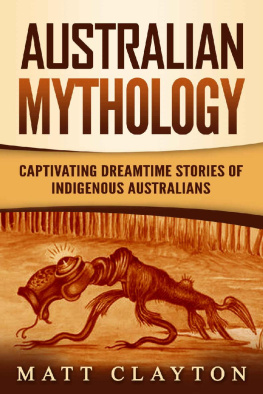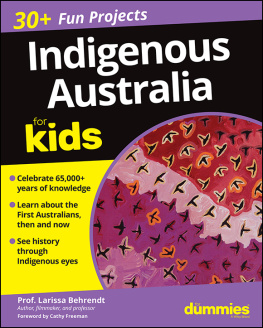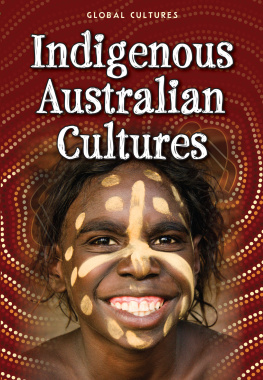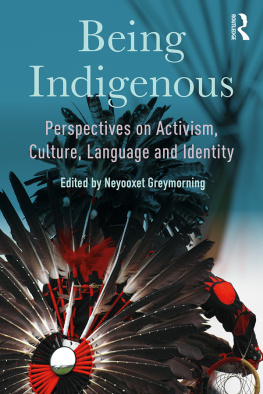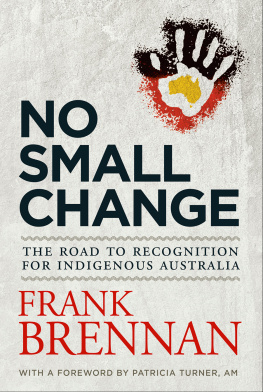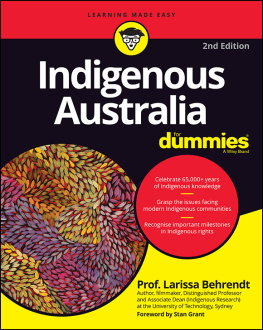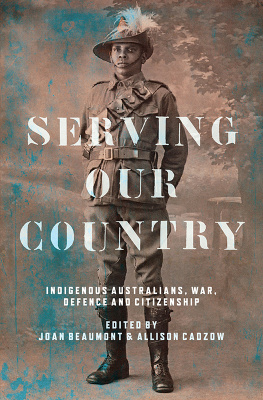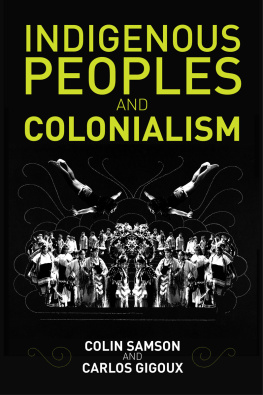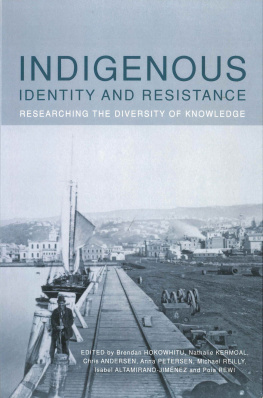Contributors
Ian ANDERSON is Associate Professor and Director of the VicHealth Koori Health Research and Community Development Unit at the Centre for the Study of Health and Society, University of Melbourne. He has researched and published widely on a range of issues dealing with Aboriginal health, identity, culture and history.
Fabienne BAYET-CHARLTON lives in the Adelaide Hills with her husband and two children. She holds a degree in Aboriginal and Island Affairs Administration, which has led her to work at the Native Title Unit, the Aboriginal Legal Rights Movement, the University of South Australia and the University of Adelaide. She has published a number of written pieces dealing with Indigenous issues, including her first novel, Finding Ullagundahi Island (Allen & Unwin, 2002), which explores her Aboriginal identity, family history and cultural dispossession. She is currently working on her second novel.
Jeanie BELL is a linguist, educator and activist based in Brisbane. She is the author of Talking About Celia: Community and Family Memories of Celia Smith (University of Queensland Press, 1997).
Tony BIRCH is a lecturer in the Department of English with Cultural Studies, University of Melbourne. He has a PhD in History and a Master of Arts in Creative Writing. He has published and taught in the areas of Australian urban and social history, contact histories between Indigenous and non-Indigenous people in Australia, and the contested meanings of heritage and landscape. He is a published poet and fiction writer.
Michael DODSON is Chair of the Australian National Universitys Institute for Indigenous Australia. He is Chairman of the Australian Institute of Aboriginal and Torres Strait Islander Studies in Canberra. Professor Dodson was Australias first Aboriginal and Torres Strait Islander Social Justice Commissioner with the Human Rights and Equal Opportunity Commission 199398, and served as counsel assisting the Royal Commission into Aboriginal Deaths in Custody 198890. He contributed for more than a decade to the crafting of the Draft Declaration on the Rights of Indigenous Peoples for the United Nations Commission on Human Rights.
Michele GROSSMAN is a senior lecturer in literary and cultural studies and head of graduate studies in the Faculty of Arts at Victoria University, Melbourne, and was a senior visiting fellow at the University of Melbourne in 2002. Her research focuses primarily on Indigenous Australian writing, representation and culture. Her work has appeared in Cultural Studies, Meanjin, Hecate, Postcolonial Studies, Womens Writing, Meridian, Australian Womens Book Review and Thamyris.
Jackie HUGGINS is a historian and Deputy Director of the Aboriginal and Torres Strait Islander Studies Unit at the University of Queensland. She is Co-Chair of Reconciliation Australia, the former Chair of the Queensland Domestic Violence Council, and has been a member of the National Council for Aboriginal Reconciliation, the AIATSIS Council, and Co-Commissioner for Queensland for the Inquiry into the Separation of Aboriginal Children. She has published a wide range of essays and studies dealing with Indigenous history and identity. She is the author of Sistergirl (University of Queensland Press, 1998), and co-author, with Rita Huggins, of the critically acclaimed biography Auntie Rita (Aboriginal Studies Press, 1994).
Sonja KURTZER is an Indigenous woman of Kokatha/Mirning descent from the far west coast of South Australia. She has worked extensively in university Indigenous education programs. She is currently undertaking studies toward a PhD in the department of Social Inquiry at Adelaide University. She has published in national and international journals, and is interested in issues of cultural and racial identity.
Marcia LANGTON holds the Foundation Chair of Indigenous Studies at the University of Melbourne, and was previously the Ranger Chair of Aboriginal Studies at Northern Territory University, where the she co-founded the Centre for Indigenous Natural and Cultural Resource Management. She has many years of experience as an anthropologist working in Indigenous affairs with land councils, the Queensland government, commissions and universities and has published extensively on Aboriginal issues including land, resource and social impact issues, Indigenous dispute processing, policing and substance abuse, gender, art, film and cultural studies. Professor Langtons publications include Well, I heard it on the radio and I saw it on the television : an essay for the Australian Film Commission on the politics and aesthetics of filmmaking by and about Aboriginal people and things (Australian Film Commission, 1993) and Burning Questions: Emerging Environmental Issues for Indigenous Peoples in Northern Australia (Centre for Indigenous Natural and Cultural Resource Management, Northern Territory University, 1998).
Aileen MORETON-ROBINSON is a postdoctoral fellow located in the Australian Studies Centre, University of Queensland. Previously she was Convenor of Indigenous Studies at the School of Humanities, Griffith University and taught Womens Studies at Flinders University. Dr Moreton-Robinson has been involved in the struggle for Indigenous rights at local, state and national levels, and has worked for a number of Indigenous organisations. She is the author of Talkin Up to the White Woman: Indigenous Women and Feminism (University of Queensland Press, 2000). Her publications in the area of native title, whiteness, race and feminism have appeared in anthologies and journals in Australia and overseas.
Philip MORRISSEY is a lecturer in the Department of English with Cultural Studies, University of Melbourne. He is an Aboriginal man who has occupied a wide range of influential positions in Aboriginal arts and cultural administration over the last seventeen years, including executive, managerial and directorial positions. He was awarded the Order of Australia medal in 1989 and has published in a range of journals including


